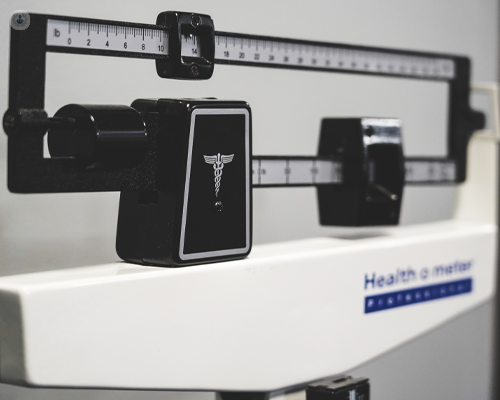Bariatric surgery: A pathway to weight loss and renewed health
Escrito por:Bariatric surgery refers to a range of surgical procedures designed to aid weight loss by making changes to the digestive system. We take a look at how bariatric surgery can provide an effective solution for those looking to lose weight and improve their overall health.

Why would someone need bariatric surgery?
This type of surgery is typically considered when diet, exercise and other non-surgical weight loss methods have failed, and when a person’s body mass index (BMI) is significantly high, often over 40, or between 35 and 40 with obesity-related health issues. Common bariatric procedures include gastric bypass, sleeve gastrectomy and adjustable gastric banding.
How does bariatric surgery work?
Bariatric surgery works by either reducing the size of the stomach or altering the digestive process to limit the amount of food the body can absorb.
- Gastric bypass: Involves creating a small stomach pouch and rerouting part of the small intestine to this new pouch, which leads to a feeling of fullness after eating smaller amounts and reduces calorie absorption.
- Sleeve gastrectomy: Removes a portion of the stomach, reducing its size to a narrow tube, which decreases food intake and impacts hormones related to hunger.
- Adjustable gastric banding: Places an inflatable band around the upper portion of the stomach to create a smaller stomach chamber that limits food intake.
What are the benefits of bariatric surgery?
Bariatric surgery can lead to significant weight loss and help improve or resolve many obesity-related conditions. The main benefits include:
- Sustained weight loss: Many patients experience substantial weight loss that can be maintained over the long term with proper lifestyle changes.
- Improved metabolic health: Conditions such as type 2 diabetes, hypertension and obstructive sleep apnoea can see marked improvements or even remission.
- Enhanced quality of life: Patients often report increased mobility, improved self-esteem and higher overall energy levels.
- Reduced risk of future health issues: Weight loss can decrease the risk of developing further obesity-related complications, including cardiovascular disease and certain types of cancer.
What does recovery involve?
Bariatric surgery recovery depends on the type of procedure and the individual. Most patients can expect:
- Hospital stay: Generally between one to three days, depending on the type of surgery.
- Initial recovery: Light activities can typically resume within a few days, but complete recovery may take several weeks. It’s essential to follow the surgeon’s advice regarding physical activity and diet.
- Dietary adjustments: Patients start with a liquid diet and gradually transition to pureed and soft foods before resuming a regular diet. Long-term dietary changes are necessary for successful outcomes.
- Regular follow-ups: These appointments help monitor weight loss progress and address any complications or nutritional needs.
Are there any risks?
While bariatric surgery is generally safe, it is still major surgery and comes with potential risks. These may include:
- Surgical complications: Such as infection, blood clots or anaesthesia-related issues.
- Nutritional deficiencies: Reduced food intake can lead to vitamin and mineral deficiencies, making lifelong supplementation essential.
- Changes in digestion: Some patients may experience dumping syndrome, where food moves too quickly through the digestive system, leading to nausea, diarrhoea and weakness.
Is bariatric surgery right for you?
Bariatric surgery is not a one-size-fits-all solution and requires a comprehensive evaluation to determine suitability. This includes an assessment of BMI, medical history and readiness for the lifestyle changes needed to sustain weight loss. Consulting with a specialist in bariatric surgery can provide personalised insights and guidance on whether this treatment is the best path for weight loss and improved health.


